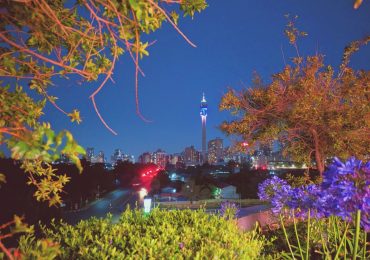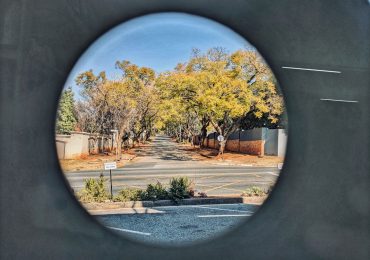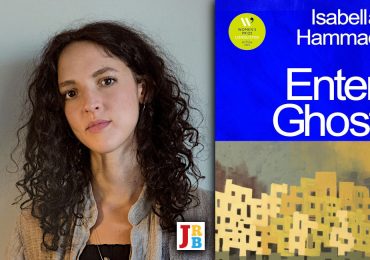The full list of winners of the English Academy of Southern Africa Awards for writing have been announced.
Founded in 1961, the English Academy of Southern Africa is a non-profit organisation that seeks to ‘promote the effective use of English as a national resource in Southern Africa’.
2022 English Academy Awards
- 2019 Thomas Pringle Award for an Education Article in a Journal: ‘Training primary school teachers for literature teaching: A view from Botswana’ by Deborah V Sanoto and Christa van der Walt (published in Per Linguam 2018 34(2): 30–51)
- 2020 Olive Schreiner Prize for Drama: What Remains: A Play in One Act by Nadia Davids
- 2020 Thomas Pringle Award for an Academic Article in a Journal: ‘Spectrality and inter-generational black narratives in South Africa’, awarded posthumously to Professor Bhekizizwe Peterson (published by Social Dynamics)
- 2020 Percy Fitzpatrick Prize for Youth Literature: Sing Down the Stars by Nerine Dorman
- 2021 Thomas Pringle Award for an Ad hoc Review: Tevya Turok Shapiro
Details of the awards and comments from the adjudicators:
2019 Thomas Pringle Award for an Education Article in a Journal: Deborah V Sanoto and Christa van der Walt
Comments from the adjudicators:
The 2019 Thomas Pringle Award for articles on English in education and the teaching of English considered articles published in accredited southern African journals in 2017 and 2018.
The winning article has been chosen based on the following three criteria: depth of scholarship, accessibility of information, and sophistication in the reporting of findings. In this respect, therefore, the panel has chosen ‘Training primary school teachers for literature teaching: A view from Botswana’ by Deborah V Sanoto and Christa van der Walt as the winning article.
On the whole, this article speaks directly to the heart of literature teaching problems plaguing many southern African education systems today. It is insightful, refreshing and elegantly written. It poses thought-provoking questions without sounding verbose. It is definitely research that must be considered by any lecturer of English, whether in mainstream English or English education, as such consideration will translate to self-reflection on one’s own practice.
Adjudication Panel
Prof. Fetson Kalua (Convener)
Dr Rangarirai Musvoto
Dr Naomi Nkealah
Prof. Rosemary Gray
2020 Olive Schreiner Prize for Drama: Nadia Davids
Comments from the adjudicators:
Not since the tumultuous days of experimental anti-apartheid playwriting of the seventies and eighties when South Africa’s iniquitous politics of race relations was put in the spotlight on world stages has someone burst on to the local playwriting scene with a play that compares with Nadia Davids’s new one-act play What Remains.
Nadia Davids’s What Remains fuses incident, character, text and physical theatre to present a profound metaphor of the country’s ongoing struggle to reconcile its troubled past with an imagined future. What we have here is a profound piece of creative writing that demonstrates an unequivocal and deliberate effort to tear the form book as it breaks new ground through extensive research, effort and a depth of thinking about issues which is second to none. Nadia Davids’s new play will remain etched in the annals of the best of contemporary South African drama for a long time to come.
Adjudication Panel
Dr Owen Seda (Convener)
Dr Samuel Ravengai
Dr Refiloe Lepere
2020 Thomas Pringle Award for an Academic Article in a journal: Professor Bhekizizwe Peterson (posthumous)
Comments from the adjudicators:
The judges selected this article for its deeply informed account of the black archive and its recuperative and reparative capacities, which the essay itself enacts. It is a text of considerable moral and intellectual power.
One of the judges noted, it evinces ‘a lifelong grappling with various texts, traditions and debates, retrospectively and self-reflexively involving Professor Peterson’s own past thinking while engaging with past and current (and prospective) public and literary interventions and debates’. Another judge commented: ‘The essay comes from somewhere deep in the marrow; looks for continuities without overlooking or disavowing the difficulties; and is as compassionate as it is cogent.’
Adjudication Panel
Dr David Attwell (Convener)
Prof. Isabel Hofmeyr
Prof. Desiree Lewis
2020 Percy Fitzpatrick Prize for Youth Literature: Nerine Dorman
Comments from the adjudicators:
I was riveted. This novel is world class fantasy. The novel explores the growth of the protagonist, Nuri, in her identity, finding acceptance from others, and herself. The intriguing calling from the whale-like sentient star-jumper, which is lovable from the start, affirms Nuri to the readers and herself and finally connects her to her calling, and that of her ancestor. The dystopian world created for the reader is credible, detailed, and sufficiently alien to fascinate – at the same time, the familiar elements of school (including the school bullies) and food offer a foothold in the world of these characters. Thoroughly enjoyable and a great choice for the PFP age group.
Despite the sadness and hurt evident throughout, the overall positivity and optimism of this novel make it an uplifting read. Although the narrative is set light years in the future, it resonates deeply with the present realities faced by humanity. Environmental crises, acceptance of others, loyalty amongst friends, perseverance in the face of adversity and the celebration of personal heritage are just a few of the themes explored in this text.
Adjudication Panel
Dr Idette Noomé (Convener)
Dr Elaine Ridge
Janet Robinson
2021 Thomas Pringle Award for an Ad hoc Review: Tevya Turok Shapiro
Comments from the adjudicators:
In a relatively short period of time Tevya Shapiro has produced an impressive output of reviews on a diverse range of film genres; documentaries, psychological thrillers, comedy, crime, fantasy, science fiction, period pieces and animated film texts, giving equally serious attention to all types and commenting closely on their multiple aspects. His observations and descriptions are marked by a fine appreciation of filmmaking in all its complexities, technical and otherwise.
Tevya Shapiro has the ability to strike precisely the right note in the linguistic register he uses. Avoiding academic- and techno-speak, his use of English is user-friendly yet rich, ensuring that it reaches an audience with widely differing levels of sophistication. His language never draws attention to itself or its writer; it keeps its focus firmly on the text under review. In this way he successfully fulfils the function of the reviewer, which is to convey a clear sense of the content, type and quality of the film or series on offer, thereby helping readers to judge whether or not they might like to watch it.
Adjudication Panel
Dr Verna Brown (Convener)
Dr Felicity Horne






9 thoughts on “[The JRB Daily] 2022 English Academy of Southern Africa Awards winners announced”